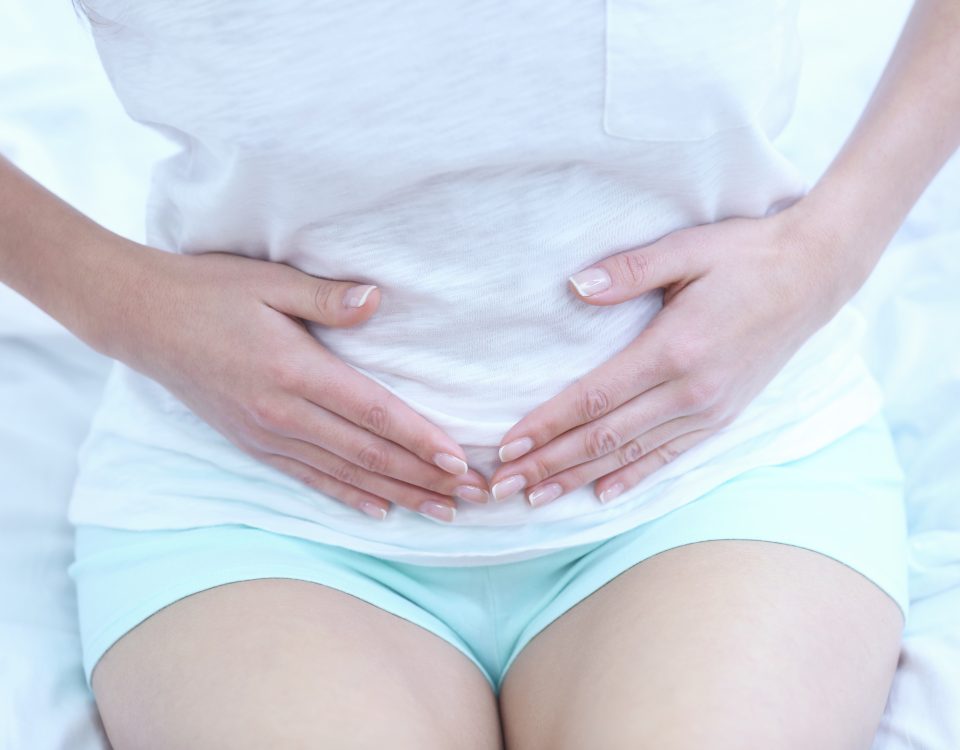Hey there. Welcome. We want to talk all about pH on this one. Where is your pH and how does it relate to your health? What are some action steps and what are some myths we can dispel. We hear about this quite a bit relative to food and water especially, you know talking about being on an alkaline diet. You know avoiding acidic foods. Then about water. There are special devices that are said to alkalize water or change its pH and modify it which could potentially act upon our health in certain ways. There are claims about it helping the body with detox and energy production and these sorts of things. I wanted to make some sense of this for you all.
- Have any questions?
- 480-631-7837
- support@in-goodhealth.com

Calcium, Vitamin D, Vitamin K, Magnesium and More Essentials
June 26, 2014
Meditation For Beginners
February 4, 2015
Calcium, Vitamin D, Vitamin K, Magnesium and More Essentials
June 26, 2014
Meditation For Beginners
February 4, 2015
So for starters what does pH mean anyways. You know very simply it is just the concentration of protons, of positive hydrogen ions. The more of those that are present the greater the capacity there is to start certain chemical reactions. The opposite of the hydrogen ions is the hydroxyl ions which is the OH-. So something that is acidic has a very low pH and something that is very alkaline has a higher pH. There is a number range and neutral is set at seven and that is calibrated based off of water. So if an H+ is acidic and an OH- is an alkaline you know water will have equal amounts of those. Mostly water is just H2O but a tiny amount of it spontaneously breaks down into 1 H+ and 1 OH- and there is always equal amounts of them. So water will always have a neutral pH unless something is added or removed from it and we will come back to this as it will be important for discussing the pH of water.
So in the body, there are different chemical compartments. We have the intestinal tract. We have our bloodstream. We have the urinary tract in which we form urine. We have saliva and lymphatic fluids and all these things have slightly different chemical needs and because of that, they are controlled to have different pH levels. In the intestinal tract it is especially true and in fact, the pH is in fact varied greatly at different sections of the intestines.
For instance, in the stomach, we intentionally have a very high amount of acid and that allows us to start breaking down and digesting foods. Notice that digestion is not the same as assimilation or absorption. So our stomach is not where things enter into our bodies or bloodstream but it is where larger molecules get burned almost into smaller molecules. They compare it to rocks being broken down into the dirt which is kind of what is happening there. The pH is important to that and especially for proteins. Further down we make the intestinal secretions more alkaline and that is more relevant to absorbing starch and carbohydrates and breaking them down better. So we have different amounts in different parts of our body and it is controlled very precisely.
In fact, our blood pH is kept in between a very narrow range of like 7.35 to 7.45. If it were to deviate too much outside of that we could not even live. We could go into a coma by even being a few units outside of that range. So we hear about pH relative to health and discussion about the pH of the diet and it’s true that some foods are more acidic and some foods are more alkalizing by there very natures and you can see that by mixing the food with water and measuring its pH.
There is also this thing called the ash. The ash residue of the food. That is really what the pH is of the remnants. The actual ash. If you were to burn a food down in a laboratory the ash that is left can have a measurable pH. So there is often implications that the foods have an effect on the bodies pH and it is partially true.

The urinary pH can be affected by foods in a couple of different ways. What happens is that our kidneys are working to maintain our blood pH and foods that have more alkalinity may have an effect on creating more alkaline urine because we are passing out more alkaline waste. We are getting rid of more of those. Now those things do not affect the blood pH. The pH really of our bodies main systems. The pH that is really maintaining ourselves. They are not acting upon that. There are many different types of alkalizing diets or acid-alkaline diets and you will see a little bit of conflict from one diet to the next.
There is not perfect consistency on which foods are said to be acidic and which foods are said to be alkalizing but a strong generalizing principle is that most types of grains and proteins are said to be acidic. This is true of the ash of their foods. Most types of produce are said to be alkalizing and this is also true of there ash. So those are the strong trends and many of the diets that base recommendations on pH will end up encouraging higher amounts of produce. You know more fruits and vegetables.
Now here is an important distinction. You can do something that is helpful and it may make a positive difference but not necessarily because of the mechanism. So it is good to eat more produce. That is one of the things that there is very little debate about. There is clear evidence that the vital nutrients, the fibers, the variety of pigments that we find in produce just have a big long list of health benefits. Our intestinal tract. Our immune system. Our cancer risks. These are all very positive benefits. However, that does not mean it is because of the alkaline effect.
If that were the case we could get the same benefits from baking soda. By just loading up on simple baking soda and that does not seem to be the case. We do not seem to get the same benefits from chemicals that act as alkalizing. So overall the pH in the blood is tightly regulated and the pH in the diet does not change the pH in the blood. It can shift urinary pH by a little bit. There is also talk about measuring salivary pH.
So in terms of measuring pH, there are test strips and there are guidelines for using these test strips. You know to pee on them and see where urine pH comes out or checking the salivary pH and those things can change. The urinary pH can change because of diet. Our cortisol levels also have a pretty big effect on urinary pH. In general, our urine is more acidic earlier in the day when we have the most cortisol secretion and more alkaline later in the day. Salivary pH is affected quite a bit by just the state of our digestion. If we are making a fair amount of stomach acid or especially if we have some version of reflux disease we will see a much more acidic or a much lower salivary pH because of that. So the recommendations you will often hear about the pH diets or the acid-alkaline diets are very good recommendations as far as eating more produce but not because those food create more pH. Its because those foods are good for other reasons.
So let’s talk about the pH of the water and alkaline water. You know should you invest in an alkaline water system. There is a lot of claims about them helping bone density and immune function and various other aspects of health. Reducing chronic pain. Here is a case where we got to separate the outcome from the rationale. So what I mean by that is that there is a lot of people that can improve their health by drinking more water. There are many that are just chronically dehydrated. An odd thing is that if you are low on your fluids by even a few % you may have less thirst then you should. You may be in a state to where you are not feeling thirsty even though you are chronically dehydrated. So lots of people could drink much more water and realistically improve their health no doubt about that.
A couple of other considerations. You do want purified water. The water that we have at our tap or from bottled water may not be the best. In many areas tap water has fluoride and that is a known endocrine destroyer. It can shift thyroid function. It can also be a factor for heightening the risk for stomach cancer per many studies. Then we see a high amount of different pesticide residues like organic phosphates or arsenic or perchlorate. You know lots of things show up in tap water so that is not good.

Bottle waters are not all that regulated. There is a big range of what you will find and it is hard to be very predictive with that range. There are also concerns about just the plastic derivatives from the bottled water entering into that. So as far as daily staples those are both not great considerations. So there are many people that have picked up water purifiers perhaps the alkalizing types and have consumed a lot more water and probably have improved their health because of that. Do you need to have alkaline water and what does alkaline water mean?
Well to a chemist. To a person who has had some background in chemistry to say alkaline water is just kind of confusing. Water and pH are things that are really tied together. I mentioned briefly earlier that we define pH based upon water. So water is neutral in pH. It has a pH of seven and that is kind of where the pH concept comes from. So to say you have alkaline water is kind of like saying you have a square circle. Its like a contradiction of terms.
Now unless you add something into water or you take something out of it the pH has to be neutral. So the devices that claim to alter its pH, if they are removing something they could do that but it may not be desirable. You know things that are highly alkaline, they can be irritants. So alkaline compounds would include things like oven cleaners and bleach, ammonia and soaps. Those are all things that would be strong irritants over the mucus membranes. Over the mouth, the esophagus, the upper intestinal tract. It would not be productive to drink on a long term basis.
So it is good to have foods that are on the alkalizing food list like produce but not because they are alkalizing foods but just because they are good for us for other reasons. In terms of water. Most devices do not change the pH of the water and if they did you would not want to be drinking something alkaline on a regular basis as that would be an irritant. You want to purify your water.
Reverse osmosis is a really easy way to go for that. There are home units that start around $100 and $150 and you swap out filters once or twice a year. You may want to check in your area. There are very good companies that do rentals of home reverse osmosis. That is what I have used personally for well over a decade. The companies who do that they often can do the filter changes for you and the cost of your rental fees may be less then the cost if you yourself had to buy filters to replace them. In any case, it is just a few dollars per month and you have got access to good purified water available at home whenever you need it. So Reverse osmosis is a wonderful way to go and very important. Water is so critical. There are are many people that just consume too little. That is common.
So we hear also about the diet and pH and about how that may impact the bones. There has been talk about more acidic diets especially higher protein diets requiring calcium to clear and causing greater bone loss. That is an example of a model of a hypothesis and when we look at the actual outcome of studies and we see if it does happen or not and it seems the opposite is the case.
If we look at elderly people who are at risk for bone thinning and we look at their protein intake those that have more of a protein intake actually have healthier and stronger bones. You know bones are a lot closer to muscle tissue then you might imagine. They do have more mineralization but they are a lot like muscle tissue in that they need adequate protein to form and stay strong. So the data shows that protein does not cause bone leaching and alkaline diets do not improve bone density because of the pH effects. There have even been studies done on that using potassium alkalizing salts instead of foods while looking at bone health.
So do eat a good diet. Do drink lots of water but do not stress about your pH. Your body has such power for regulating that and it is so critical that it can not move even outside the slightest of margins. So stay active. Take great care of yourself and hang tight and we will be back really soon with more content just like this.

P.S. Whenever you are ready, here is how I can help you now:
- Schedule a Thyroid Second Opinion with me, Dr. C, Click Here for Details
- Need help to choose supplements? Click ‘Help Me Decide Here'
- Get my top books Here
Dr. Alan Glen Christianson (Dr. C) is a Naturopathic Endocrinologist and the author of The NY Times bestselling Hormone Healing Cookbook, The Metabolism Reset Diet, and The Thyroid Reset Diet.
Dr. C’s gift for figuring out what works has helped hundreds of thousands reverse thyroid disease, heal their adrenals, and lose weight naturally. Learn more about the surprising story that started his quest.






